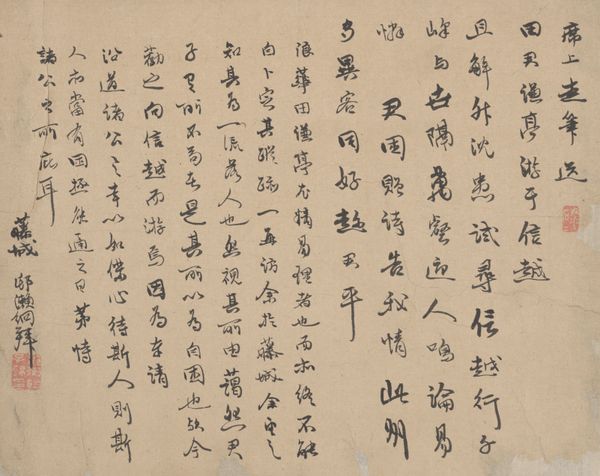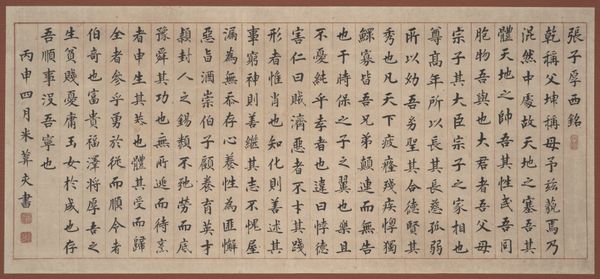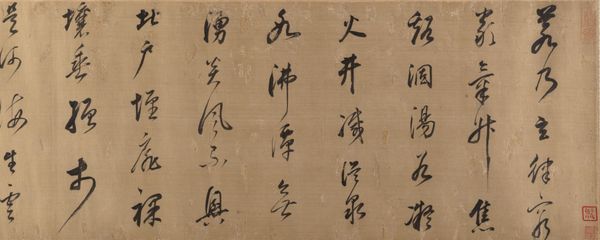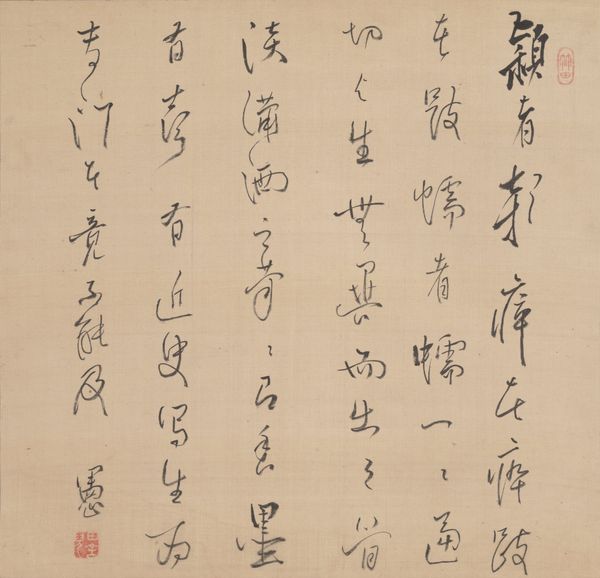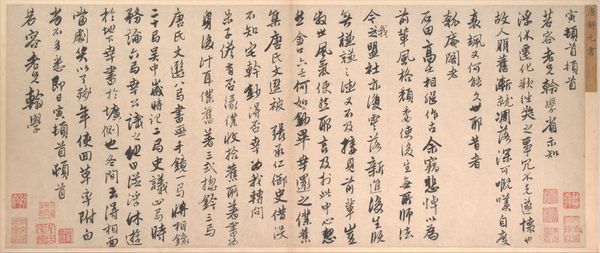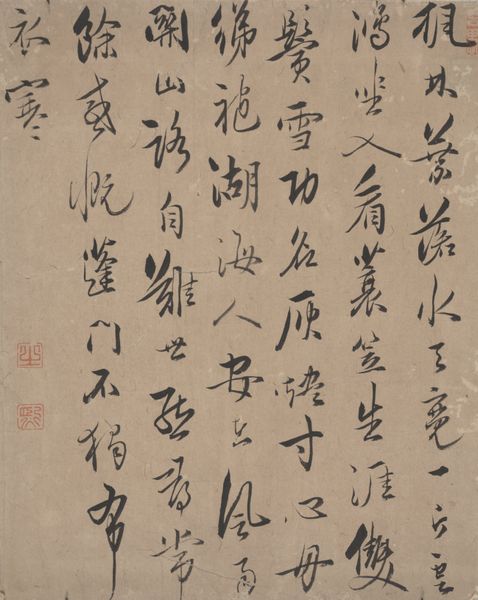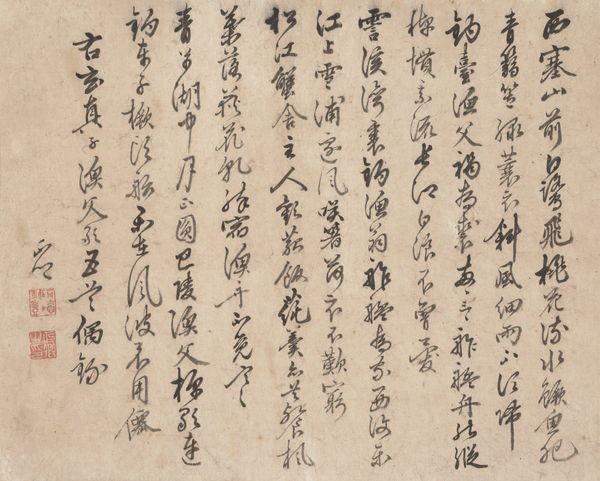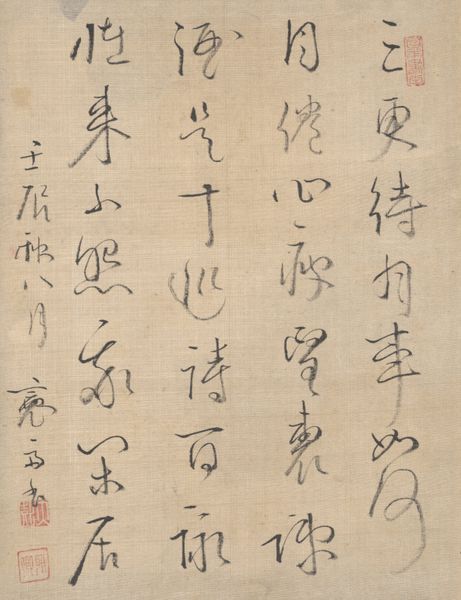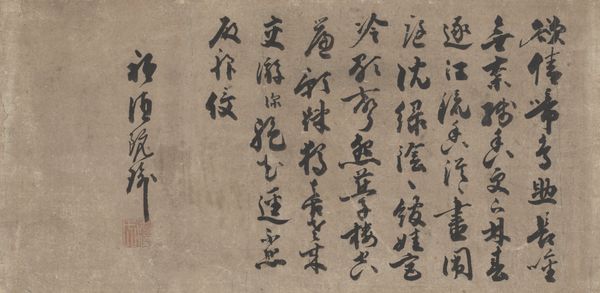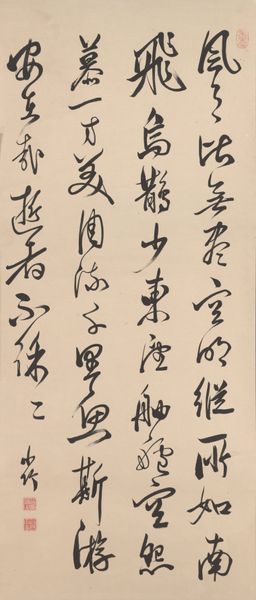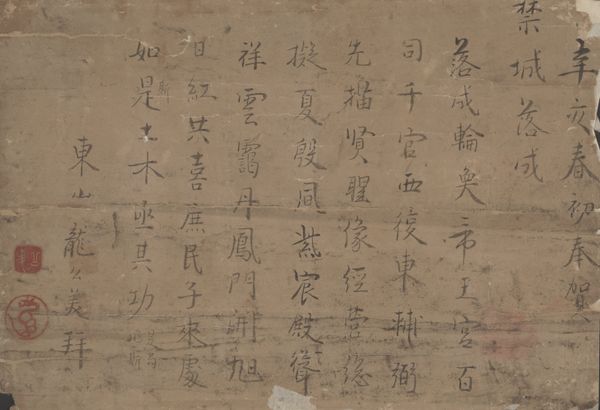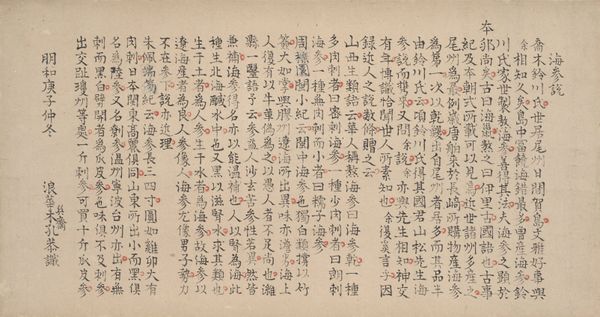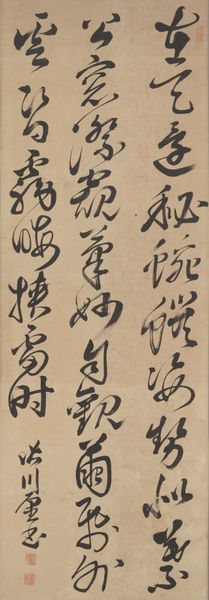
drawing, paper, hanging-scroll, ink
#
drawing
#
asian-art
#
paper
#
hanging-scroll
#
ink
#
calligraphic
#
calligraphy
Dimensions: 14 7/16 × 20 3/16 in. (36.67 × 51.28 cm) (image)
Copyright: Public Domain
Maki Ryōko created "Lu Tong's Tea Song" using ink on paper, at some point during his lifetime, which spanned the late 18th and early 19th centuries in Japan. The artist conveys the famous Tang dynasty poem by Lu Tong which elevates tea to a near-spiritual experience through his expressive calligraphy. Ryōko, who was active during the Edo period, demonstrates the deep cultural significance of tea in Japanese society, as it was a central element in artistic and intellectual life. Ryōko brings the story to life, evoking both the literal and the emotional experience that tea could offer. Each character is carefully rendered, and together they form a visual rhythm that echoes the poem's cadence. Tea transcends its material form, becoming a conduit for introspection, connection, and a deeper understanding of the self and the world. Ryōko captures the intimate, sensory experience of drinking tea. It's a reminder of tea's ability to ground us, to offer solace, and to awaken our senses.
Comments
minneapolisinstituteofart about 2 years ago
⋮
This is a rendering of the famous Song of Tea that the Chinese poet Lu Tong (790–835) composed to share his sensation about tea. “Thanking Imperial Advisor Meng for the Fresh Tea He Has Sent Me”The sun seemed fifteen feet above me, and I had fallen asleepWhen an army officer knocked at the door, waking this Duke of Chou.He tells me the Advisor has sent me a letterOn white silk with slanting fold and three official seals.I open the missive—it is as if the Advisor and I are face to face—And inspect by hand the Moon Brick tea, three hundred pieces of it.I have heard that early in the year, if one goes up in the mountains,Hibernating creatures are beginning to move and spring winds are starting to blow.The Son of Heaven, desiring men to taste fine Yangxian tea,All other plants never dare to blossom first.A gentle breeze secretly forms buds like pearls;Before spring actually arrives, they put forth sprouts of yellow gold.The fresh plants are gathered, the fragrant tea is fire-dried and pressed into bricks,The very best, the most exquisite—no empty luxury.Aside from the Most Honored, it is suitable for princes and dukes;So how is it that now it has arrived at the home of a mountain man'My bramble gate closed tight against vulgar visitors,Wearing a cap of gauze, by myself I boil and taste the tea.The blue smoke cloud, drawn by the wind, remains unbroken;A white froth—floating luster—congeals in the bowl.With bowl number one, my throat and lips are moistened;With bowl number two, my lonely sadness is dispelled.Bowl number three cleans out my withered bowels,Leaving only five thousand volumes inside!With bowl number four, I raise a light sweatAnd all the worrisome affairs of my entire life evaporate through the pores.With bowl number five, my skin and bones are purified;With bowl number six, I commune with immortal spirits.Bowl number seven I can barely get down;I only feel pure wind blowing, swishing beneath my arms!The mountains of the Penglai paradise, whe
Join the conversation
Join millions of artists and users on Artera today and experience the ultimate creative platform.
